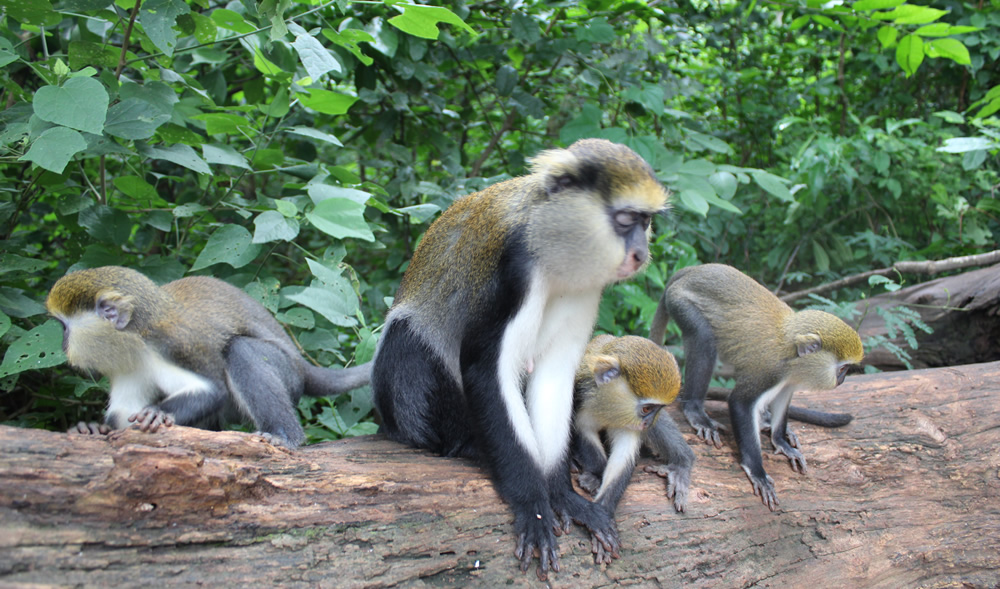Welcome to Ghana, a nature lover’s nation, with a sunny equatorial climate and fertile well-watered soil, which sustains a selection of wildlife, ranging from elephants to monkeys and marine turtles to crocodiles, as well as hundreds of colourful birds and butterfly species.
“More than 5% of the country’s surface area has been accorded official protection across 16 national parks or lower-profile conservation areas, of which the most popular tourist destinations are the vast Mole National Park in the northern savannah and the forested Kakum National Park near the coast”. (Ghana Tourism Authority, 2016).
What is Ecotourism?
It is travelling that’s carried out responsibly to natural areas, where priority is given to conserving the environment and sustaining the overall health and well-being of the indigenes, which helps improve the understanding and knowledge of the tourists through education.
Over the years, Ghana has emerged as a pioneer in the field of community-based ecotourism, which aims at creating a mutually beneficial three-way relationship between conservationists, tourists, and local communities. The Boabeng-Fiem Monkey Sanctuary, for instance, home to sacred troops of mona and black-and-white colobus monkeys, led the way in 1995, and it remains the flagship for more than two dozen other community-based tourism projects countrywide. These range from the award-winning Wechiau Hippo Sanctuary in the Upper West and Amansuri Wetland Sanctuary in the Western Region to cultural sites such as the Domana Rock Shrine, set in the forests near Kakum National Park, and the painted houses and pottery of Sirigu in the Upper East.
Volta Region also hosts the country’s largest concentration of community-based ecotourism sites and offers outdoor enthusiasts some superb opportunities for hiking, rambling, and mountain biking. Popular attractions include the sacred monkeys of Tafi Atome, a plethora of magnificent forests and waterfalls around Amedzofe, the country’s highest peak on Mount Afadjato, and the magnificent forests and waterfalls
Ghana is highly admirable to birdwatchers, with 725 species recorded in an area comparable to Great Britain. For casual visitors, it is colourful savannah birds such as gonoleks, rollers, parrots, and weavers that tend to catch the eye, as well as the eagles and other raptors that inhabit the drier north. Serious birdwatchers, however, are likely to want to seek out the more elusive residents of the shadowy rainforests interiors of Kakum, Bui, and Ankasa, as well as the exceptional variety and volume of marine species that congregate on coastal lagoons such as Keta, Songor and Muni-Pomadze.
Not least among Ghana’s Natural attractions are the superb palm-lined beaches that line its 500km Atlantic Coastline. One of the most beautiful, is Ada Foah, on the Volta Estuary, an important nesting site for endangered marine turtles. The beaches flanking Elmina and Cape Coast are ideal for those who wish to combine their sunbathing with some historical sightseeing, while their less developed counterparts further west around Busua, Axim, and Beyin offer the opportunity to truly get away from it all in idyllic surrounds. And for those with limited time, there is always La or Coco Beach, lively sun-drenched expanses of white sand situated on the outskirts of the city of Accra.
THE WAY FORWARD
These are great inputs so far, but what can be done as a nation to sustain and improve upon ecotourism as it plays a major role in our economic sector?
As one partakes in ecotourism trips, one also receives an abundance of information educating you on topics pertaining to that area’s wildlife and natural environments. Therefore, the National Commission on Civic of Education (NCCE) must see to it that all indigenes and tourists who visit Ghana, are educated on the right way to protect the environment during their stay. For example, no littering, use of eco-friendly materials, etc.
By interacting with a natural environment through an ecotourism lens, you have the opportunity to leave it better than you found it. We must transition from merely observing to positively interacting with these environments through participatory cleanup in the various localities these tourist sites can be found.
Support community-based tourism and initiatives. Ghanaians must not wait for tourists from outside Ghana alone to patronise and visit these heritage sites. We must be willing to support our own.
Copyright 2011 – 2016 Ghana Tourism Authority


